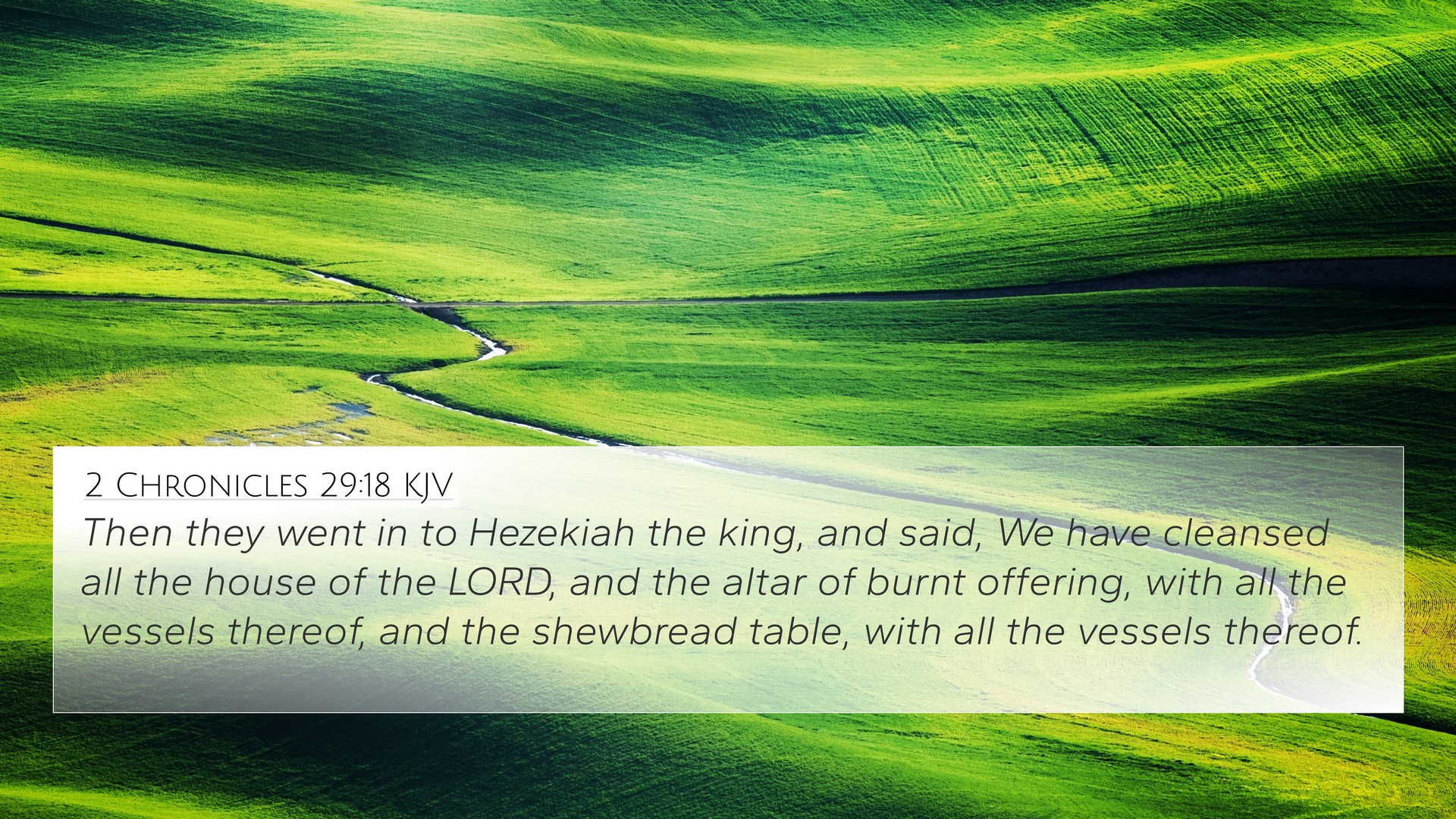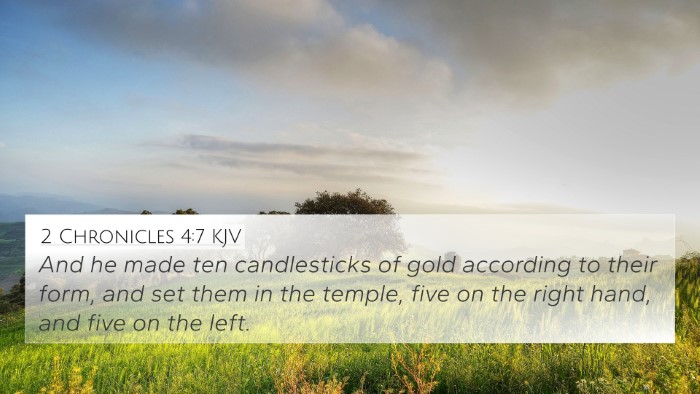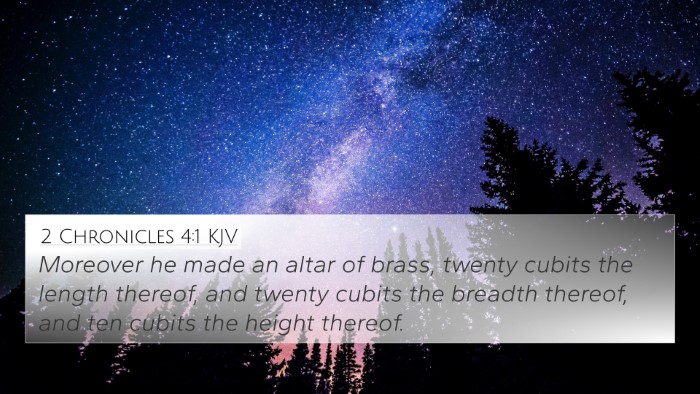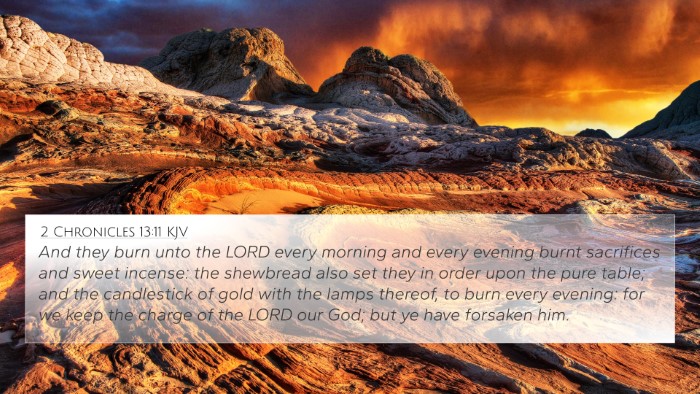Understanding 2 Chronicles 29:18
2 Chronicles 29:18 states: "Then they went in to Hezekiah the king, and said, 'We have cleansed all the house of the LORD, and the altar of burnt offerings, with all the vessels thereof, and the shewbread table, with all the vessels thereof.'
Verse Context and Importance
This verse captures a pivotal moment during King Hezekiah's reign, reflecting the significant religious reforms he initiated. The cleansing of the temple and the restoration of worship practices signifies a return to faithfulness and obedience to God after a period of apostasy.
Combined Insights from Commentaries
-
Matthew Henry:
Henry emphasizes the spiritual significance of cleansing the temple, as it symbolizes purifying the heart of the people. He notes that the diligent effort put into restoring the worship of God demonstrates the importance of reverence in worship.
-
Albert Barnes:
Barnes suggests that this act of purification signifies both a physical and spiritual renewal. He points out that the priests and Levites played a crucial role in this process, indicating the community's collective responsibility in restoring proper worship.
-
Adam Clarke:
Clarke discusses the details of the act of cleansing, noting the involvement of various instruments and vessels dedicated to the Lord. He interprets this as a foreshadowing of Christ’s ultimate atonement and the necessary preparation for true worship.
Historical and Theological Significance
The historical context of this verse illustrates a period in Israel's history where the temple had fallen into disrepair and disuse. The cleansing under Hezekiah’s administration is foundational for understanding the necessity of spiritual renewal in both the Old and New Testament contexts.
Bible Verse Cross-References
This verse can be connected to various other Bible passages that emphasize themes of cleansing and restoration:
- 2 Kings 18:1-8: Details Hezekiah's reforms and the destruction of idols.
- 2 Chronicles 30:5: Highlights the call for the people to come together for the Passover after the temple's restoration.
- Exodus 30:18-21: Discusses the importance of the laver for cleansing before entering the temple.
- Isaiah 1:16-17: Encourages the people to wash themselves and cease doing evil, reflecting the call to holiness.
- Malachi 1:7: Addresses the improper offerings made to God, paralleling the need for proper worship.
- Hebrews 9:22: Discusses the necessity of blood for purification, linking to the ultimate sacrifice of Christ.
- Matthew 21:12-13: Jesus cleansing the temple establishes a parallel to the need for pure worship.
Thematic Bible Verse Connections
The act of cleansing the temple connects deeply with the wider biblical narrative concerning the holiness of God and the necessity of true worship. This pattern of restoration is mirrored throughout scripture, illustrating the relationship between God's people and their worship practices.
Practical Application of the Verse
In applying the truths of this verse today, believers are encouraged to seek personal and communal spiritual cleansings, examining their lives and churches for areas that may require restoration. Just as Hezekiah led the nation in turning back to God, modern believers are called to do the same in their personal and church lives.
Conclusion
2 Chronicles 29:18 stands as a powerful reminder of the significance of worship and the necessity of maintaining a clean heart and a pure worship environment. The connections with other verses deepen our understanding of God's desire for purity and devotion, enriching our spiritual lives through cross-referenced study.
Tools for Bible Cross-Referencing: Utilizing a Bible concordance, a cross-reference Bible study guide, and detailed commentaries can enhance one's understanding of the connections in scripture, strengthening faith and knowledge.





